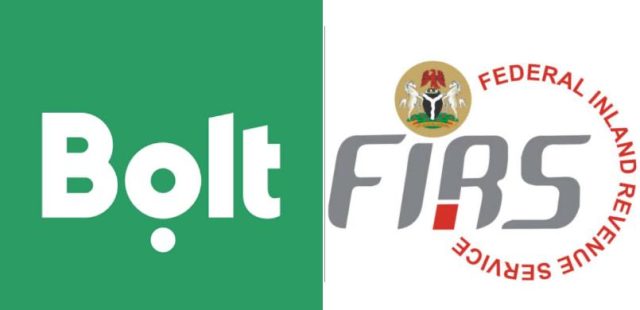The Federal High Court in Lagos has upheld the powers of the Federal Inland Revenue Service (FIRS) to charge, collect, and remit Value Added Tax (VAT) on food and transportation services provided through the Bolt digital platform.
Delivering the judgement on Thursday, a judge, Akintayo Aluko, affirmed an earlier decision of the Tax Appeal Tribunal (TAT), which had validated FIRS directive asking Bolt to serve as its agent responsible for VAT compliance on behalf of independent food vendors and ride-hailing drivers using its platform.
Mr Aluko also awarded N1 million in costs against Bolt Operations in favour of the FIRS.
Background
Bolt Operations, a non-resident technology company that operates a ride-hailing and food delivery platform in Nigeria, had approached the Tax Appeal Tribunal under suit number TAT/LZ/VAT/074/2022.
The company challenged FIRS authority to designate it as a VAT collection agent for services rendered by independent third-party drivers and vendors.
Bolt argued that it merely operates a marketplace that connects customers with independent service providers and does not directly engage in providing transportation or food services.
It contended that the FIRS directive violated Section 10 of the VAT Act, particularly as Bolt is not a Nigerian-incorporated entity and does not own the vehicles or food outlets offering services through its platform.
The tribunal, however, dismissed the suit in a ruling delivered on 26 May 2023, holding that the appointment of Bolt as an agent for VAT collection was lawful and within the powers granted to the FIRS under the VAT Act.
Dissatisfied with the Tribunal’s decision, Bolt, through its legal team—led by Elvis
Asia and supported by Blessing Uwejewah and P.O. Okujere—approached the Federal High Court seeking to overturn the ruling.
The appellants raised six issues for determination, arguing, among other things, that the Tribunal erred in affirming their appointment without considering the preconditions outlined in subsections (1) and (2) of Section 10 of the VAT Act.
They argued that FIRS Simplification Guidelines exceeded the scope of the law by categorising Bolt, a non-resident platform, as a taxable supplier.
They said Bolt had no direct involvement in food vending or transportation, and thus could not be designated a taxable supplier.
They stated that the tribunal wrongly held that Bolt lacked the legal standing (locus standi) to challenge its appointment, and relied on statutory provisions in Sections 31 of the FIRS Act and 49 of CITA that were not raised during trial.
In defence, FIRS’ counsel Moses Idaho, with Olufemi Asekun, argued that Bolt’s claims were speculative and based on a misinterpretation of the tribunal’s ruling.
They urged the court to uphold the tribunal’s decision and dismiss the appeal with substantial cost.
But Mr Aluko resolved three out of the six issues—specifically Issues 1, 4, and 6—in favour of the FIRS.
The court struck out Issues 2 and 5, while Issue 3 was decided in favour of Bolt. However, the outcome did not affect the validity of the tribunal’s ultimate ruling.
“Going by the evidence relied upon by the Tax Appeal Tribunal, the Respondent acted within the law in appointing the Appellant pursuant to Section 10(3) of the VAT Act,” Mr Aluko held.
“There is no valid reason to disturb the judgement of the Tribunal. Consequently, the judgment of the Tribunal delivered on 26th May 2023 is affirmed.”
The court dismissed the appeal and awarded N1 million as the cost of the action in favour of FIRS.
Tribunal’s earlier findings
In June 2023, the Tax Appeal Tribunal, led by A.B. Ahmed, held that the FIRS had not acted ultra vires by appointing Bolt as a collecting agent.
Mr Ahmed, a professor, found that suppliers of taxable goods and services—including food vendors and ride-hailing drivers—listed on Bolt’s platform were legally required to charge and remit VAT.
READ ALSO: First HoldCo responds to misrepresentation of facts by ThisDay & Arise
The tribunal ruled that FIRS was within its rights to streamline tax compliance by appointing Bolt, given that it would be impractical to monitor and collect VAT from individual drivers and food vendors across the country.
The tribunal also determined that Bolt had no standing to challenge the VAT obligations imposed on vendors and drivers using its platform, since those were third-party businesses with independent obligations.








